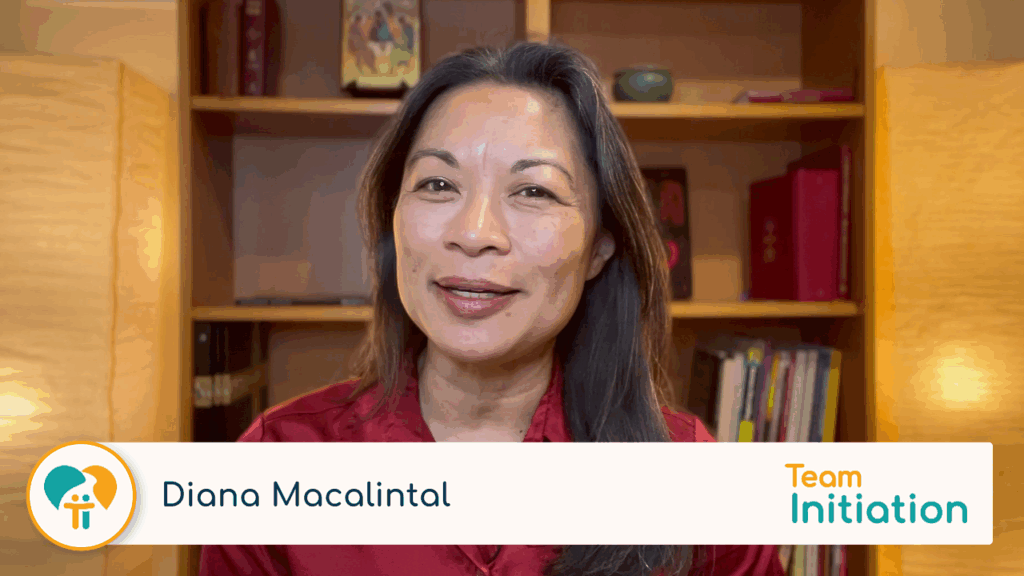 Here at TeamRCIA, we spend a lot of time talking about the inadequacy adapting the catechumenate into a school model. Using a classroom paradigm is so common in parishes that many RCIA teams think it is the norm. However, if you read the Rite of Christian Initiation of Adults carefully, you will find no reference to a syllabus, a curriculum, or a school schedule.
Here at TeamRCIA, we spend a lot of time talking about the inadequacy adapting the catechumenate into a school model. Using a classroom paradigm is so common in parishes that many RCIA teams think it is the norm. However, if you read the Rite of Christian Initiation of Adults carefully, you will find no reference to a syllabus, a curriculum, or a school schedule.
The Vatican has taken notice of this aberration. Because of Pope Francis’s constant emphasis on evangelization, the Pontifical Council for Promoting New Evangelization recently held a press conference to present the new Directory for Catechesis. The new directory is essentially the third catechetical directory since the Second Vatican Council. A distinctive feature of the second directory (General Directory for Catechesis) is its emphasis on evangelization. When it was published in 1997, the word “evangelization” was still new for a lot of Catholics. As strong as the 1997 directory was in emphasizing evangelization, however, it was presented as a single moment in the catechetical process.
The RCIA is about evangelization
The new Directory for Catechesis builds on its predecessor and on the teaching of Pope Francis to clarify that every phase of catechesis is some form of announcing the “first proclamation” or the kerygma. At the press conference, Archbishop Rino Fisichella, president of the Pontifical Council for Promoting New Evangelization, said:
Evangelization occupies the primary place in the life of the Church and in the everyday teaching of Pope Francis. It could not be otherwise. Evangelization is the task that the Risen Lord has entrusted his Church in order to be, in the time of every age, the faithful announcement of his Gospel.
Catechesis, therefore, must be united intimately with the work of evangelization and cannot be separated from it. It needs to take on the very characteristics of evangelization, without falling into the temptation to become a substitute for it or to want to impose its pedagogical premises on evangelization. In this relationship, the primacy belongs to evangelization, not catechesis. (emphasis added)
When we contort the initiation process into a school model, we are getting things backward. We are giving the primacy to catechesis and not evangelization. According to Archbishop Fisichella, parishes that are defaulting to a school model for the catechumenate need to undergo “a ‘pastoral conversion’ in order to free catechesis from some chokeholds that prevent its effectiveness.”
What is holding catechesis back?
Archbishop Fisichella identifies three chokeholds that keep catechesis from being effective.
The first such chokehold can be identified in the school model, according to which the catechesis of Christian Initiation is undertaken under a school paradigm. The catechist replaces the teacher, the school classroom becomes the catechetical room, the school calendar is identical to the catechetical one, etc.
A second one is the mentality by which catechesis becomes the condition for receiving a particular sacrament of initiation, with a consequent void opening up once initiation has ended.
A third is the exploitation of a sacrament in the name of pastoral strategy, so that the time frame for confirmation is dictated by the need not to lose the small flock of young people remaining in the parish rather than by the significance which the sacrament possesses of itself in the economy of the Christian life.
The pastoral conversion that we all need to undergo is to let go of our paradigm that catechesis is only about conveying a set of doctrines. It is primarily an invitation to a life of joy (see Directory for Catechesis, 68).
RCIA is about an encounter with Jesus Christ
Pope Benedict XVI, who laid the groundwork for the church’s renewed emphasis on evangelization, said:
Being a Christian is not the result of an ethical choice or a lofty idea. But the encounter with an event, a person, which gives life a new horizon and decisive direction. (God is Love, 1)
It’s time to break free of the chokeholds so seekers and parishioners can more easily encounter the person of Jesus Christ.
(Hat tip to Brian Hanson who alerted me to the pontifical council’s press conference.)
Your turn
What needs to be addressed in your parish RCIA to help parishioners encounter Jesus? What would this mean for your catechesis? Share your thoughts in the comments below.


















Year round RCIA always was the plan and with any plan there are successes and failures. Having been in the training and implementing RCIA in the parish for a long time it became obvious that timing was challenging. In 1997 I purchased Mary Birmingham’s book ‘Year-round Catechumenate’. The issue was always present however people like to think ‘when do I begin and when will I end ‘. It is the beginning and ending approach. The process can combine both year round which could have an informal spirit while the ‘getting to know Jesus and His message’ can have a formal spirit’. Lets not jump to try to approach RCIA with a ‘fix it’ attitude but rather lets try to build on what was and what is.
A new person coming to the Catholic Church as an inquirer is better to be one on one. With coffee shops having outdoor sitting is an ideal place to take an inquirer to talk to them over a cup of coffee or tea, etc. So much can be accomplished no matter the time or the day. If the parish has a large group of inquirers that may be different but the one on one is the most significant at first and then people can be grouped off in smaller groups until the Catechumenate. It is at that time that classes can be formed for teaching different subjects of the church. “Sacraments, Mary, Trinity, etc. These are things I have learned in working with RCIA for many years and have tried many different models.
Fantastic article! Such important information not just for those working in adult initiation ministry but for the entire parish. This “pastoral conversion” needs to look at all our traditional school based formation processes.